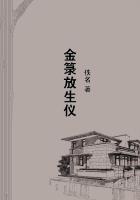"I don't know anything about Heaven and Hell; they are hypothetical, are they not? Life and death are enough for me," and she stopped.
"Then by life and death, for life and death, and for ever, I love you, Isobel."
"Thank you," she said, and stopped once more.
"You don't help one much. Have you nothing to say?"
"What is there to say? You made a statement for which I thanked you.
You asked no question."
"It is a question," he exclaimed indignantly. "If I love you, of course I want to know if you love me."
"Then why did you not say so? But," she added very deliberately, "since you want to know, I do and always have and always shall, in life or death--and for ever--if that means anything."
He stared at her, tried to utter something and failed. Then he fell back upon another very primitive and ancient expedient. Flinging his arms about her, he pressed her to his heart and kissed her again and again and again; nor, in her moment of complete surrender, did she scruple to kiss him back.
It was while they were thus engaged, offering a wonderful spectacle of love triumphant and rejoicing in its triumph, that another person who was passing the church bethought him of its shelter as a refuge from the pouring rain. Seeing the open door, Mr. Knight, for it was he, slipped into the great building in his quiet, rather cat-like fashion, but on its threshold saw, and stopped. Notwithstanding the shadows, he recognised them in a moment. More, the sight of this pair, the son whom he disliked and the woman whom he hated, thus embraced, thus lost in a sea of passion, moved him to white fury, so that he lifted his clenched hands above his head and shook them, muttering:
"And in my church, /my/ church!"
Then unable to bear more of this spectacle, he slipped away again, heedless of the pouring skies.
By nature, although in obedience to a rash promise once he had married, Mr. Knight was a true woman-hater. That *** and everything to do with it were repellent to him. Even the most harmless manifestations of natural affection between male and female he considered disgusting, indeed indecent, and if these were carried any further he held it to be among the greatest of crimes. He was one of those who, if he had the power, would have hounded any poor girl who, in the country phrase, "had got into trouble," to the river brink and over it, as a creature not fit to live; or if she escaped destruction, would have, and indeed often had, pursued her with unceasing malignity, thinking that thereby he did God service. His attitude towards such a person was that of an Inquisitor towards a fallen nun.
Moreover, he could do this with a clear conscience, since he could truly say that he was qualified to throw the first stone, being of those who mistake personal aversion for personal virtue. Because his cold-hearted nature rejected it, he loathed this kind of human failing and felt good in the loathing. Nor did it ever occur to him to reflect that others, such as secret malice, jealousy and all uncharitableness on which his heart fed, might be much worse than the outrush of human passion in obedience to the almighty decree of Nature that is determined not to die.
These being his views, the feelings that the sight awoke in him of this pair declaring their holy love in the accustomed, human fashion, can scarcely be measured and are certainly beyond description. Had he been another sort of man who had found some devil flogging a child to death, the rage and indignation aroused in his breast could not have been greater, even if it were his own child.
The one thing that Mr. Knight had feared for years was that Godfrey, who, as he knew, was fonder of Isobel than of any other living creature, should come to love her in a fuller fashion: Isobel, a girl who had laughed at and flouted him and once told him to his face that a study of his character and treatment of others had done more to turn her from the Christian religion than anything else.
In a sense he was unselfish in this matter, or rather his hate mastered his selfishness. He knew very well that Isobel would be a great match for Godfrey, and he was by no means a man who underrated money and position and their power. He guessed, too, that she really loved him and would have made him the best of wives; that with her at his side he might do almost anything in the world. But these considerations did not in the least soften his loathing of the very thought of such a marriage. Incredible as it may seem, he would rather have seen Godfrey dead than the happy husband of Isobel.
Mr. Knight, drunk with rage, reeled rather than walked away from the church door, wondering what he might do to baulk and shame that living, loving pair who could kiss and cling even among the tombs. A@@thought came to him, a very evil thought which he welcomed as an inspiration sent straight from an offended Heaven. Sir John Blake had come home; he knew it, for he had passed him on the road seated alone in a fine motor-car, and they had waved their hands to each other not ten minutes before. He would go and tell him all; in the character of an upright man who does not like to see his rich neighbour harmed by the entanglement of that neighbour's daughter in an undesirable relationship. That Sir John would consider himself to be harmed, he was sure enough, being by no means ignorant of his plans and aspirations for the future of that daughter, who was expected to make a great alliance in return for the fortune which she would bring to her husband.
No sooner said than done. In three minutes he was at the Hall and, as it chanced, met Sir John by the front door.
"Hullo, Reverend! How are you? You look very wet and miserable; taking refuge from the rain, I suppose, though it is clearing off now. Have a brandy and soda, or a glass of port?"
"Thank you, Sir John, I am an abstainer, but a cup of hot tea would be welcome."















